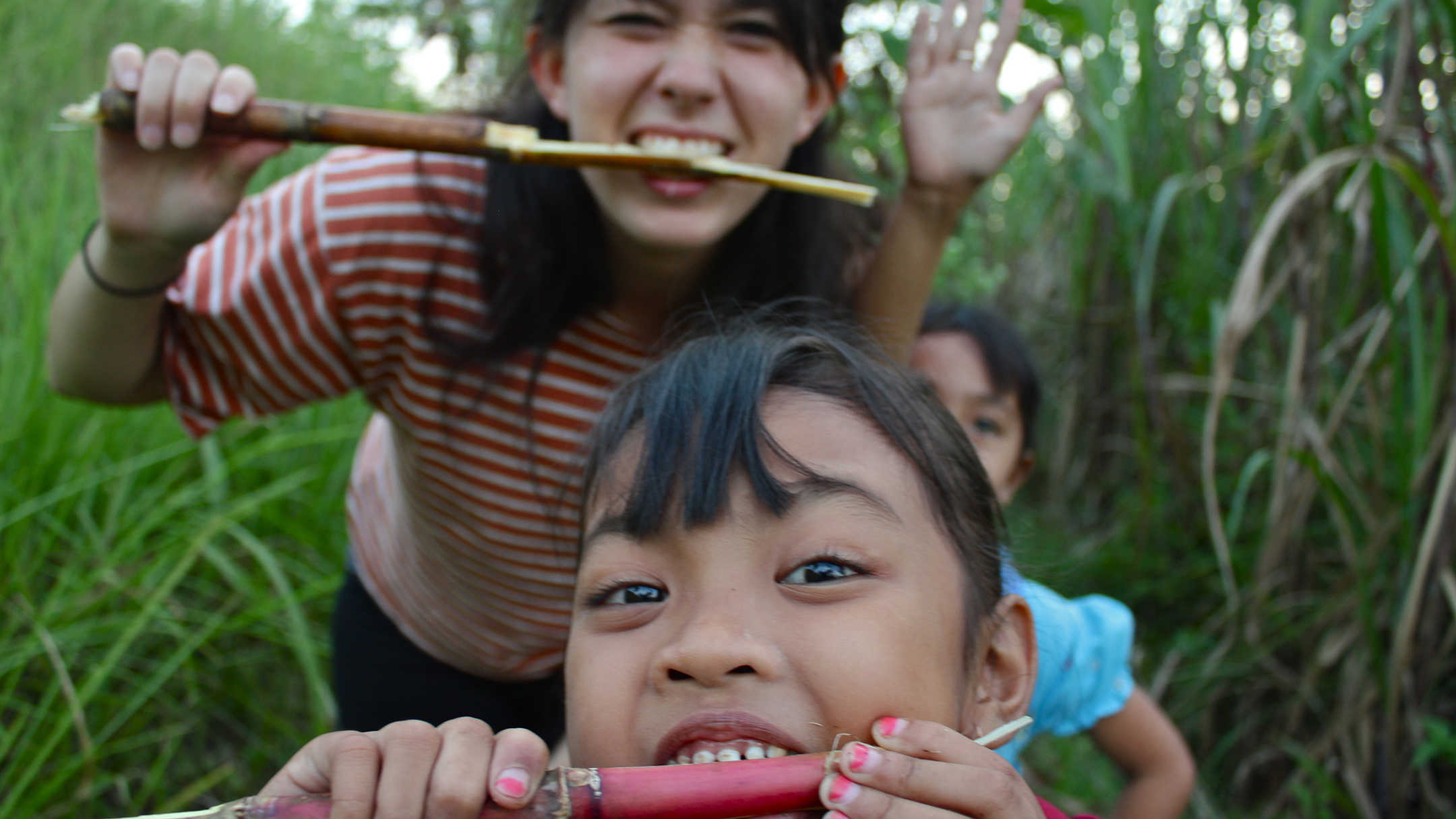
By Karen Shih
Walk the halls at Heller and chances are you’ll bump into a Returned Peace Corps Volunteer (RPCV). She might be a student who flew back a week before the start of the school year, excited to combine lessons from her experiences abroad with what she’s learning in class. Or perhaps an alumnus hosting a Lunch and Learn session to share details about his career as a social entrepreneur. Or even a faculty or staff member who served decades ago, but who still draws on those life lessons each day.
The community grows each year. In Fall 2018, 22 RPCVs enrolled at Heller—more than 10 percent of the entering class—and it’s a point of pride and connection as they network with fellow students and alumni.
“It’s just one of those experiences you take with you for the rest of your life,” says Ricki Herrera, MBA/MA SID’20. Meet a few of the RPCVs who have brought their passion for service, especially to empower the disadvantaged around the world, to Heller:
A foundational experience
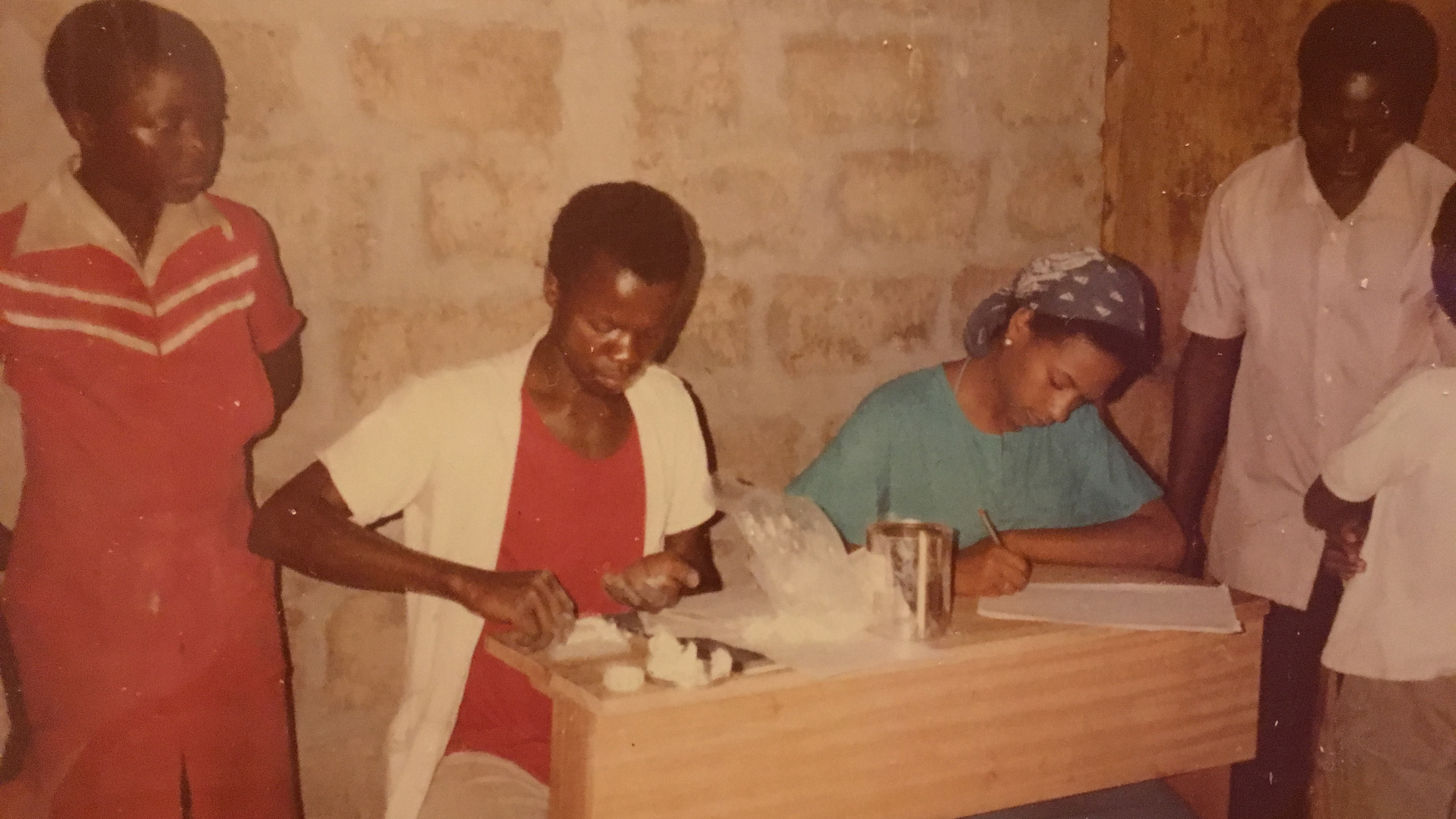
“Peace Corps is an intercultural experience that becomes foundational for everything: How I think about research at the ground level, human interaction, cultural humility, and it gives me a better perspective as an African American on the strengths and weaknesses of living in America,” says Associate Dean Maria Madison.
Serving in Zaire (now the Democratic Republic of Congo) more than three decades ago “gave me a sense of career and purpose,” she says. During her service right after college, Madison was “the model of the barefoot community health worker.” She lived in a hut with dirt floors (“I was considered wealthy because I had a tin roof”) and oversaw a team that did everything from weighing babies to managing a small pharmacy to providing oral rehydration therapy and vaccinations. She then transferred to a position to do epidemiology and community diagnosis, where they worked to prevent the spread of Schistosomiasis, a disease caused by parasites in standing water.
“You don’t think you can do it until you have to,” she says. “You’re given far more responsibility than you should be. Whoever thought I could survive on my own so far away from home?”
After returning from her service, her career would take her to Africa again and again as she studied international health, and even today, she consults for the University for Global Health Equity in Rwanda.
In her role at Heller, she brings what she learned through Peace Corps into her work every day. As students seek to work across cultures and around the world, she reminds them to always embody cultural humility, not paternalism and to always work jointly with local people. “Seek first to understand and then be understood; be a facilitator as opposed to a lecturer,” she says. Embrace “the art of listening, and the art of prioritizing others’ needs before determining and designing interventions.”
“Being proud of the smaller victories”
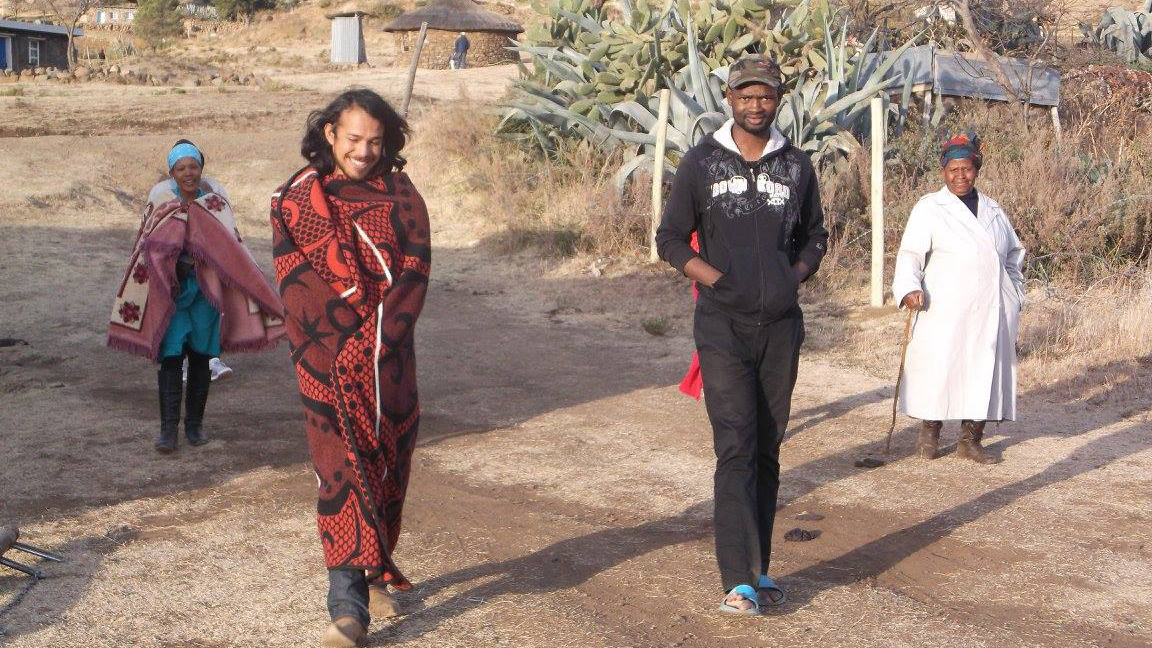
“As cliché as it sounds, I’ve always been interested in service,” says Ricki Herrera, MBA/MA SID’20. “My mom always said, ‘You should always do what you can to help other people.’ I have a vivid memory of second grade, when she drove us through Skid Row in downtown L.A. and told us that even if we had it bad, they have it worse. She’d always give away clothes and money.”
Herrera started volunteering in middle school, joining two different service clubs. When he heard about the Peace Corps during an AP world history class at age 16, “I immediately knew it was the thing I wanted to do.”
He applied after earning his undergraduate degree and was sent to Lesotho, a tiny country in Southern Africa, as a community health volunteer.
“It was exciting to see and learn about other people and cultures. All the things they told me were going to be difficult weren’t a problem for me, like the lack of running water or electricity,” he says. “The biggest shock for me was how lonely it could be. I was an hour’s drive from the nearest volunteer.”
He worked with a local clinic and schools on a program to target HIV-positive youth, since Lesotho has one of the highest rates of HIV infection in the world, and offered nutrition workshops and monitored malnourishment rates in the village.
Like other RPCVs, he quickly learned that success wasn’t going to be what he originally imagined. “Before you go, you think, ‘I’m going to save the world!’ So when you go to the site and you haven’t worked in a week because of funding lapses, you feel like a failure. But getting over that hurdle and being proud of the smaller victories, whether it’s teaching a class or assisting a youth club, is a major part of the experience.”
He decided during his last month in Lesotho to apply to graduate school for nonprofit management, taking advantage of the Coverdell Fellowship program that offers financial aid for RPCVs returning to school. A college professor recommended that he look at Heller, and when he saw the option to do the dual Social Impact MBA and MA in Sustainable International Development, he was sold.
He came to Heller in Fall 2018 with a large class of fellow RPCVS. He’s even rooming with a fellow RPCV, Elizabeth Nguyen, MBA/MA SID’20, who served in Swaziland.
“It’s hard to explain the bond that all the volunteers have,” he says. “There’s a big readjustment when you come back, and it’s nice to find everyone.”
“One of the best decisions I’ve ever made”
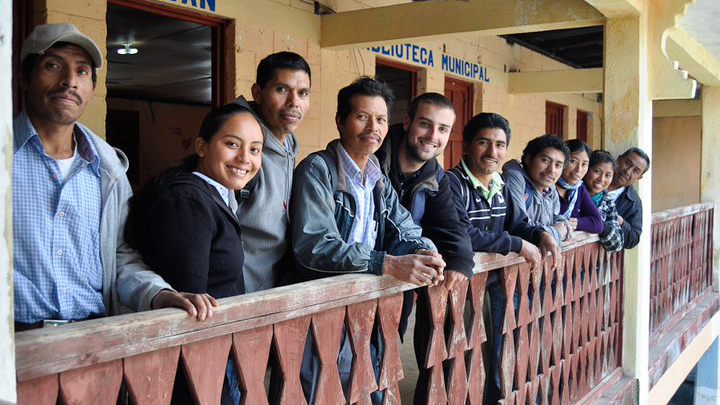
It was the Great Recession that spurred Kyle Richard to spend 27 months at the Guatemalan-Mexican border, working on ecotourism. He’d studied natural resources management in college but had trouble finding a job with the flagging U.S. economy, when an advisor suggested he consider the Peace Corps.
“Peace Corps is one of the best decisions I’ve ever made,” says Richard, program coordinator for the Eli J. and Phyllis N. Segal Citizen Leadership Program. “I got the trial by fire that helped me into my adulthood. No matter what kind of work you want to do, it elucidates the soft skills you’ll need and opens your mind to the different influences that make things possible.”
He put his skills—and passion for wildlife conservation—to use in the remote municipality of Sibinal, where he worked with the environmental department to develop parkland for ecotourism. He created trails; developed signage, tours and programming in local villages around trout fishing and endangered bird watching; and started a recycling program.
“Peace Corps teaches you patience and humility when you want to enact social change, to put yourself aside,” he says. “First, build trust. Go to dinners. Play volleyball. Learn about the history—this was a region hit hard by civil war and had outsiders mining for resources. By the end of the two years, though I did make trails and pamphlets and give lectures, the accomplishment I was most excited about was that the people trusted me enough to work with them.”
When he returned to the United States in 2011, he continued to work on community development with a focus on the environment and eventually found his way to the Segal Citizen Leadership Program at Heller in November 2018.
The Segal Program “values social justice and social change and wants to grow future leaders in that regard,” he says, giving him an opportunity to draw on his own experiences to support the fellows.
“The kind of services Segal offers, I had to get à la carte through my time working: Finding a mentor, resources, a network of people,” he says. “I look back at my reentry from the Peace Corps and put myself in the Segal fellows’ shoes: what kind of support and mentorship would I need?”
An opportunity that opens doors
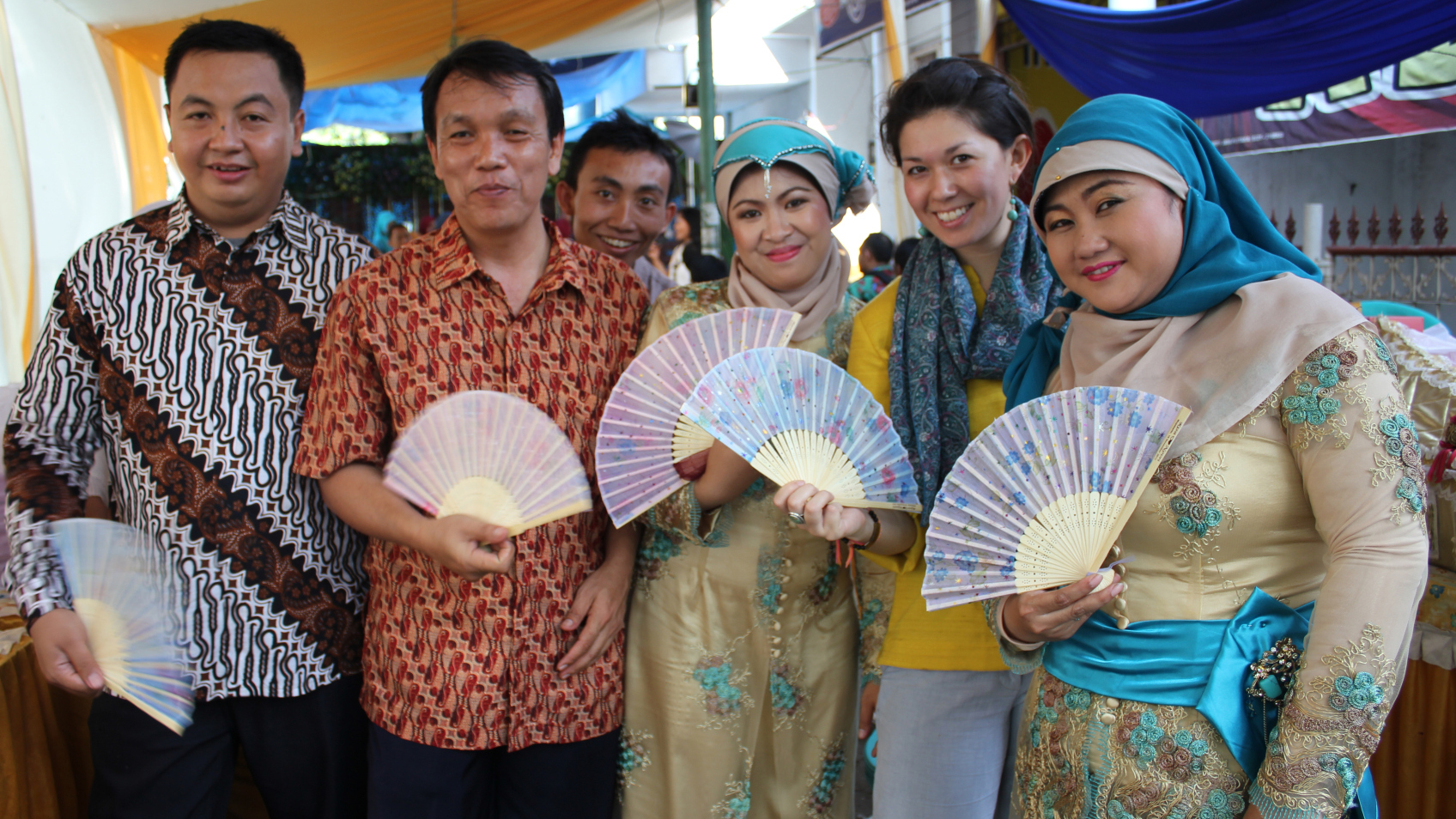
For Elle Chang, MA SID’15, the Peace Corps was a launching pad for her federal career.
“I was always interested in helping people and diplomacy, and this seemed like a great opportunity to live and work in a different country to experience a new community and culture,” says Chang, who was an education volunteer in East Java, Indonesia.
Since middle school, she’d worked with refugee families from Iraq, Afghanistan and Burundi to improve their English as they resettled in the United States. After graduating from college, she became part of just the second group of Peace Corps volunteers to return to Indonesia after the program went on hiatus in the 1960s.
Chang was excited to help reestablish the Peace Corps presence in Indonesia, identifying and interviewing potential schools where volunteers could teach and families that could host them, creating an infrastructure for future cohorts. As a foreigner moving into a tight-knit farming community, she found that integrating and establishing meaningful relationships required patience. She soon learned the best way to get to know people was simply by sitting outside of her host family’s house, where children would come find her to play and adults in the community would stop by to chat.
As she looked at graduate programs toward the end of her service, Heller’s SID program stood out with its practicum option. “A lot of the organizations were places I’d been interested in working for,” says Chang, including the United Nations Development Programme, where she joined the Equator Initiative for her practicum.
For Chang, Peace Corps opened many doors. The Coverdell Fellowship made graduate school at Heller affordable; her shared experiences developed into friendships with fellow RPCVs both at Heller and beyond (she even met her fiancé through the Peace Corps); and it gave her noncompetitive eligibility for federal government hiring, which helped her get a job at the U.S. Environmental Protection Agency.
Now she serves as an international program specialist in the Office of International and Tribal Affairs, where she has the opportunity to engage with international partners and stakeholders during multilateral environmental fora, such as the United Nations Environment Assembly and G7 meetings. Her current focus is on addressing food loss and waste issues through innovative policy solutions at the global scale.
“It’s an exciting time to work on environmental issues,” she says.
